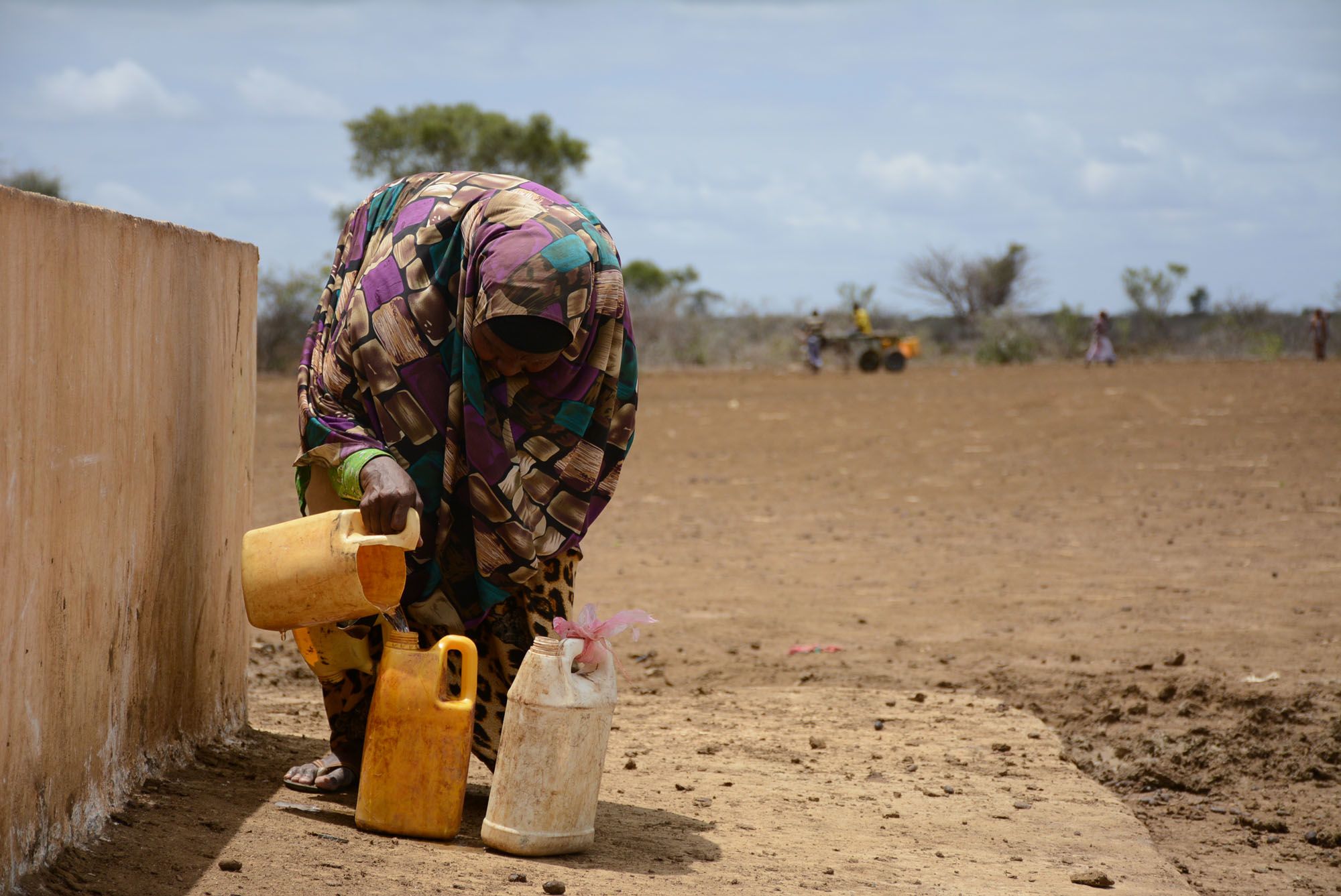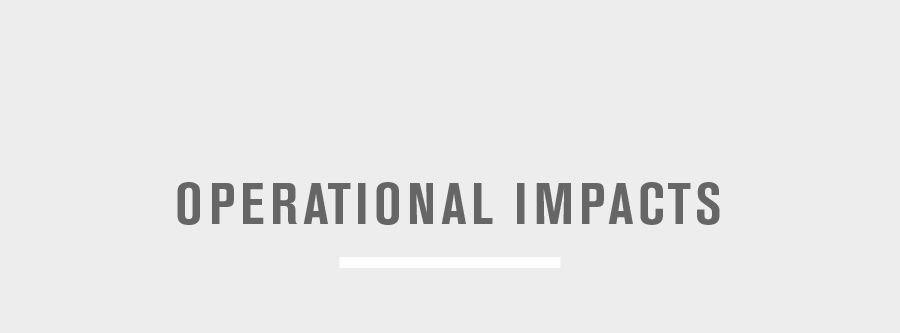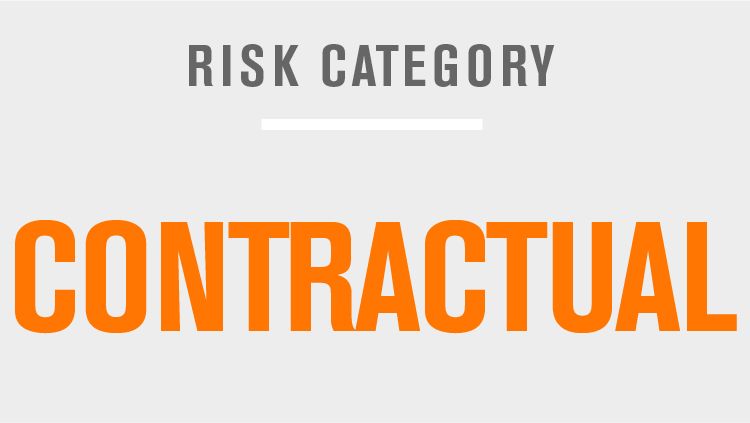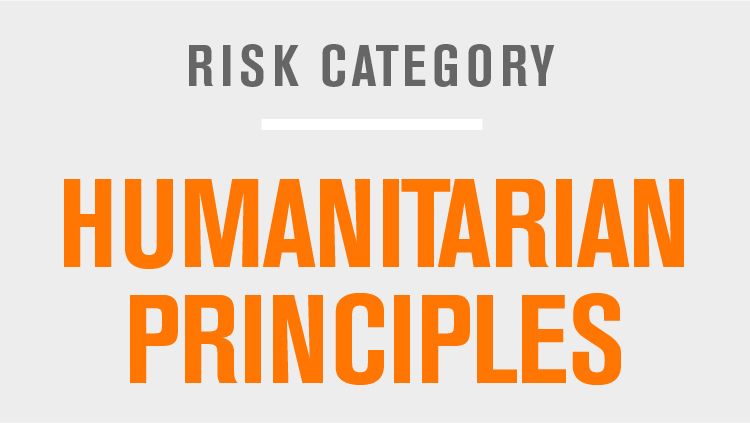What are the risks?
Counterterrorism measures and principled humanitarian action




Prosecution over the provision of support to DTGs
The broad definition of support for terrorism that some states have adopted makes this a risk for humanitarian organisations and their staff if they are deemed to have provided support for designated terrorist groups (DTGs) by carrying out certain activities. For example, the US Supreme Court ruled in 2010 that training DTG members in International Humanitarian Law (IHL) was classed as material support and so prohibited.
Criminalisation of staff
Criminal laws designed to counter terrorism have the potential to criminalise humanitarian workers. Local staff members may be particularly exposed to risks under the host country’s counterterrorism legislation. Potential offences that could involve criminal responsibility include presence in an area of designated terrorist activity, the indirect financing of terrorism and broad forms of association with proscribed groups.


Insecurity
Engaging with non-state armed groups (NSAGs) , regardless of whether they are DTGs, is a key element of gaining and maintaining secure access to people in need. Engagement also helps to establish consent and acceptance for humanitarian organisations’ activities, which is vital to ensure staff safety. Counterterrorism measures can create uncertainty for organisations about whether contact with NSAGs that are also DTGs is permissible.
Some organisations refrain from engaging with these groups as a result. Organisations that fail to engage with NSAGs because of counterterrorism concerns risk negative perceptions of partiality and non-neutrality, which in turn puts staff at risk. Other organisations do engage with these groups, but do not provide staff with support and guidance about how to do this. This can create a “don’t ask, don’t tell” approach whereby field-based staff engage without the knowledge of senior management, and feel unable to openly discuss dilemmas and risks.


Delay
The inclusion of counterterrorism clauses in grant agreements can delay the implementation of humanitarian initiatives while organisations work with donors to try to negotiate changes or seek clarity about vague wording. The fact that donors do not always inform organisations when they introduce a new counterterrorism clause or change the wording of existing clauses only increases the likelihood of delays. Some requirements, including screening and/or vetting procedures, may also delay the provision of assistance.
Delays can also occur as a result of bank derisking, which happens when banks refuse, or take longer than expected to provide transfers to locations perceived as high risk in order to minimise their own exposure to accusations of facilitating terrorist financing.
Lower quality of response
Compliance with donor counterterrorism requirements may reduce the quality of an organisation’s response by causing it to choose modalities perceived as lower risk even if they are less appropriate and effective for a particular context.
Risk transfer to staff:
Counterterrorism-related wording in grant agreements can be vague and difficult to interpret. It is not uncommon for humanitarian organisations to accept these clauses without fully understanding the requirements involved. Staff tasked with implementing a project under a grant agreement may not have been involved in negotiating it, but they shoulder the burden of complying with the requirements, and organisations often do not provide the necessary guidance or support on how to do so.
Risk transfer to local partners:
International NGOs often pass on donor counterterrorism requirements to local partners in the form of “flow-down clauses” without ensuring they understand what signing the clause entails, or that they have the resources and capacity to comply. Local partners may accept requirements that are impossible for them to adhere to or that endanger their staff as a result.
Establishing a precedent
This can occur when one organisation accepts a counterterrorism clause that others deem unacceptable. Some organisations may choose to negotiate more favourable terms, but their leverage and ability to do so is weakened if others have already accepted the requirements.
Loss of funding
Some organisations have refused donor funding as a result of uncertainty about, or unwillingness to accept the terms of counterterrorism clause required of them. Expenditure may also be disallowed under a contract if an organisation does not comply with all donor regulations.


Compromised impartiality:
In order to minimise exposure to counterterrorism risks, organisations may choose not to provide assistance in areas controlled by NSAGs that are also DTGs, regardless of the humanitarian needs there. This compromises the impartiality of their response and leaves affected populations without the assistance they need simply because of their location. If an organisation is not perceived as impartial, it can also put staff safety at risk.

Risks related to indirect support to a DTG
Global Solidarity is an international humanitarian organisation that runs large-scale programmes in areas affected by conflict. Global Solidarity works in area X, which is controlled by local authorities who have strong links with a DTG. Operations are managed remotely. There are no international staff based in the area because of access and security concerns.
Global Solidarity put out a tender for the provision of trucked water for area X. The process was administered by the remote management team per standard operting procedures (SOPs) . After the bid process, one of the bidders alleged that contractors had to pay three per cent of the contract value to the local authorities in order to obtain approval to operate in area X.
Global Solidarity’s field coordinator based in area X confirmed this was the case. This was the first time the remote management staff had been informed that field staff were aware of such payments or had any confirmation of their existence.
No tender bids for any current or previous contracts had mentioned a requirement to pay percentage fees to the local authorities to operate in area X. The bids were very detailed, so the fees, which amounted to thousands of dollars, appear to have been absorbed within the overall bids in a way that hid them from Global Solidarity.
The fees contravened Global Solidarity’s policies on facilitation payments, and the local authorities’ relationship with a DTG carried further implications.
A report was provided to Global Solidarity’s regional anti-corruption adviser, who launched an internal investigation. The remote management team immediately suspended the signing of new contracts until the matter could be fully investigated. Global Solidarity made an initial declaration to associated donors and sought legal advice on anti-corruption and terrorism financing legislation.
Global Solidarity also raised the issue with the UN Office for the Coordination of Humanitarian Affairs (OCHA), requesting that it intercede with the local authorities to seek a waiver that would exempt NGOs from paying fees imposed on services that contributed to the provision of humanitarian relief. The engagement, which was undertaken with other affected humanitarian organisations, was successful and a waiver was granted.
Global Solidarity engaged the donor that funded the trucked water project in discussions about risk sharing. The donor agreed the payments in question did not constitute significant irregularities but chose to classify the costs as non-reimbursable and subject to repayment.
The incident sheds light on the obstacles faced in providing humanitarian aid in areas where DTGs may be active, and the additional challenges associated with managing operations remotely. It also shows that internal checks and balances can help to mitigate issues that may arise from remote management, and that coordination and collaboration among humanitarian organisations and donors is essential to bring about solutions.


